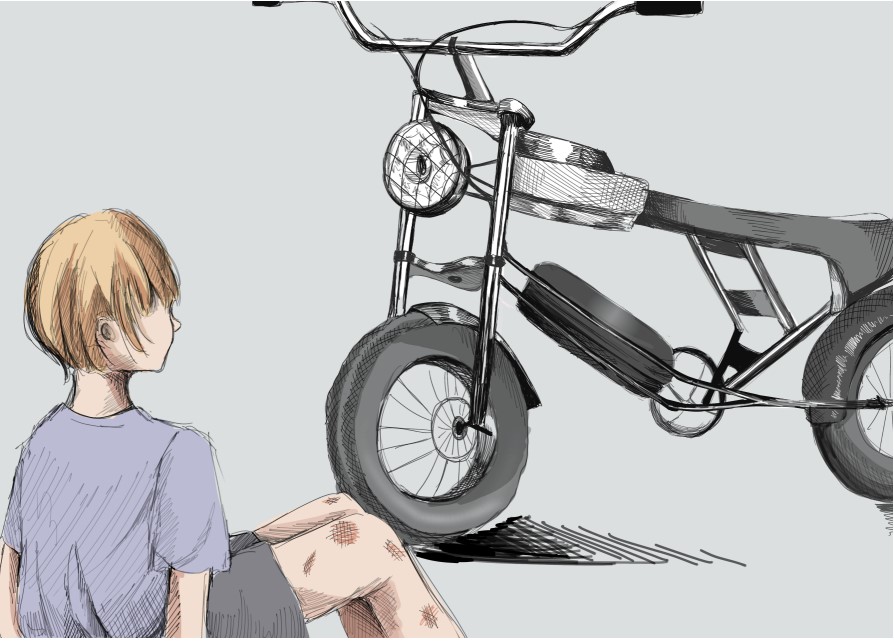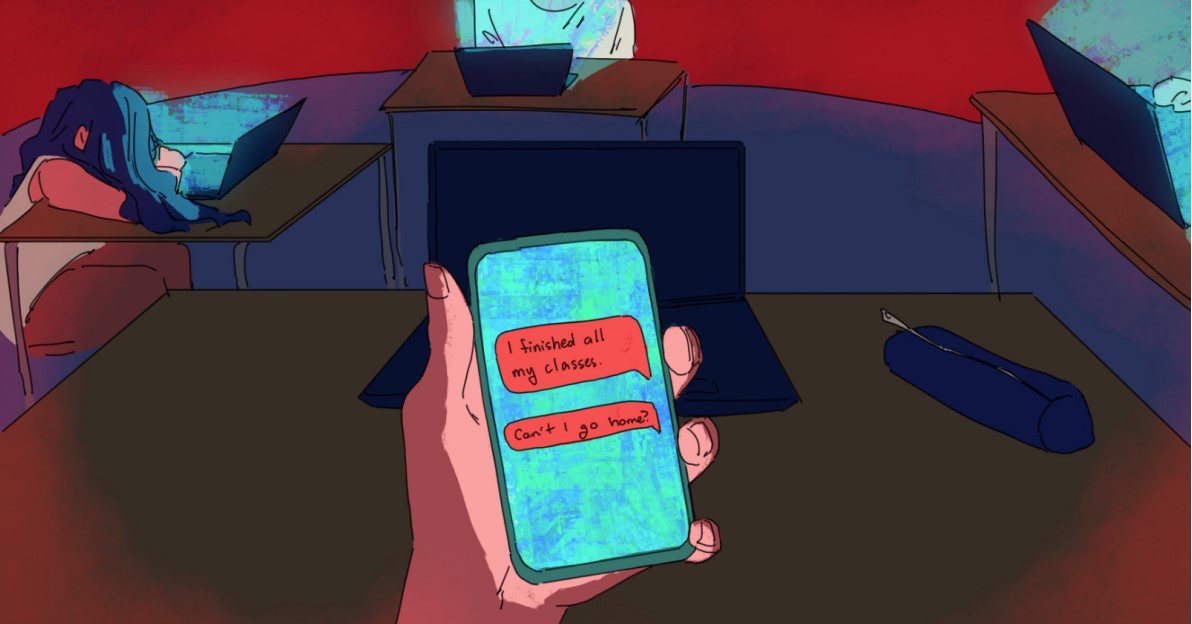In Jean-Paul Sartre’s 1939 novel “Nausea,” the main protagonist, Antoine Roquentin, expresses feelings of lost motivation and indifference, facing a tunnel that seems symbolic of the impending conclusion to this chapter of their life: “I am in no hurry to start walking again. It seems as if I had touched the goal of my happiness.” For the graduating class of 2025, and many classes before them, this sentiment has likely been shared by many.
During these last few months of the school year, stuck in the belief that there is nothing more to gain from their high school experience, seniors often try to scrape by and do the minimum effort just to complete the semester. They suffer from “senioritis,” the declining motivation to do school work, participate in extracurriculars and go to school.
However, declining motivation is not beneficial in the long run for any student. Even after high school, there are challenges that require continued motivation to achieve success. Sophomore at the University of California, Irvine (UCI) and Woodbridge High alumna Yejin Song touches on what life looks like beyond high school.
“I think it’s definitely a different kind of anxiety because in high school you’re worrying about the college [you get into] and now that you’re in college, you’re worrying about your job,” Song said.
It is important to recognize that senior year is the beginning of adulthood, not just the end of high school. It is the start of students recognizing what they want to do with their future and furthering their educational or professional aspirations. At the end of the day, senior year is just another year that should be cherished and taken advantage of, just as every other year.
Although a lot of things end in high school, friendships can endure for a lot longer. Genuine, fulfilling connections that surpass those four years can carry on to college and beyond.
“Graduating [high school] is just a little component of your life, [so] it wouldn’t stop the long-term connections you have with other people,” Woodbridge High alumna and UCI freshman Melody Liao said. “I think that being surrounded with not only college friends [but also] high school friends is also very important.”
For those going to college, there will be an endless number of new people and experiences. Because of this, many have the tendency to put the past behind them and feel the need to chase after the next best thing. But high school friendships are just as important to keep because they provide strong networks of support and acceptance.
Developing friendships is a lifelong journey that is not affected by something as short-lived as high school.
While seniors often acknowledge that high school is fleeting, that awareness doesn’t always translate into truly living in the present. Students at this point in their high school career often normalize having tunnel vision, focusing only on completing college applications and receiving college acceptances. Once those are over, all they do is count down the days until graduation.
However, this year is in no way meaningless. There is more to senior year than the application season and severe cases of senioritis. Students forget that what gives this year meaning is actually living it.
Students should not suddenly stop caring about engaging in meaningful extracurriculars, mentoring underclassmen and participating in school events just because they can no longer put it on the resume to get into their top dream college.
Seniors should be focusing on creating long-lasting memories rather than trudging through the year constantly waiting for the next best thing. If we are constantly waiting for the next best thing in life, we will be waiting forever. This is not a mindset we should be carrying into the future. Changing that mindset starts now. The greatest way to remember this crucial, rollercoaster-of-a-ride year would be being able to say, “I experienced high school to the fullest.”
After four years of effort and growth, it is tempting to view the final stretch as a mere countdown. But the way a chapter ends matters just as much as how it began. The end of high school is not a race to the finish; it’s a chance to reflect and to be present. In the end, we choose how this era in our lives will be remembered.
There is often pressure to have everything planned out by the time the tassel turns, but those moments happen gradually. Not every moment needs to be grand to matter. Meaning often hides in the mundane, in moments we can’t often remember at first: trying to hide uncontrollable laughter in a dead silent class, completing the daily Wordle every morning or spending way too much money on the vending machine snacks. These ordinary experiences, when we were present, became lasting memories.
This final chapter deserves attention, not detachment. By being present now, seniors create not just closure, but a foundation for what comes next.














